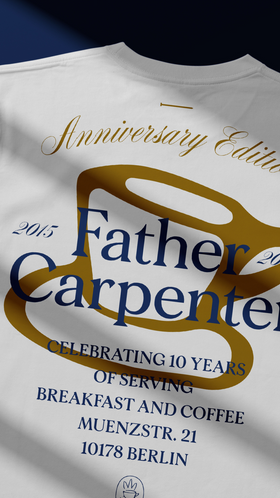April 11th - 13th

Constitutive power of language and hospitality: Customer vs. Guest
In this day and age we are bombarded with information from all corners of the Earth. During the day and at night. Nowadays information, and most importantly how we communicate it, has become a powerful mechanism. And the framing of it is a significant tool in itself.
Framing literally means that every piece of information is depicted through a particular frame or a lens, which forges our cognitive perception of an object or phenomenon. It is used by such sources of information as mass media, political discourse, “common sense”, traditions, and social environments we exist in. Information does not simply exist out there, objectively in the material world, but is indeed the result of social interaction and interpretation. This means that everything we know is socially constructed. And language plays the central role in this meaning-creation. It has a constitutive power and has the ability to form and transform objects. For instance, we can call one and the same person either “a foreigner” or “a refugee”. Objectively we are referring to one human-being, but our brain has two different sets of preconceived ideas connected with each of the frames. One is more neutral, the latter, however, has a very negative connotation nowadays. Even if we did not know the person before, just this reference creates a cognitive image of an individual in our heads and we act according to what we think is appropriate behaviour around this person. And again, what is appropriate is socially constructed and is a result of culture, traditions, and language.
So what does it have to do with hospitality? - you’ll ask. I’d like to talk about how framing could transform it too. When I first started working in hospitality, one of the first things I was told during the training on the floor was: “these are not our customers, these are our guests”. The difference seems to be insignificant and very subtle, right? Soon I realised that this word play indeed changes the game completely.
Who is a customer? According to Cambridge dictionary it is “a person who buys goods or a service”. Easy. Customers receive service. However, it has nothing to do with hospitality, does it? Hospitality is an act of being friendly, welcoming and kind to.. well, your guests. When you invite somebody over to your house, you try to give them all your attention and cook the best food you are capable of cooking paired with the best bottle of wine you could find in the store around the corner. If one conceives of the people who come to their cafe as of guests, one also might start behaving like a hospitable owner of the house. It is no longer just service, it is a relationship. A friendly relationship full of care, respect and consideration for one another.
The tradition of inviting other people over to our houses or giving them a roof over their heads is probably as old as the society. There are controversies about whether or not humans are social creatures, but even if they were not initially, such behaviour was vital for their survival. Only living in groups ensured that one could sleep safely, while others would stay on guard. Much later the era Renaissance popularized such values as individualism and humanism and emphasized the importance of the private sphere. People, nevertheless, would let those who were not part of their family into their private sphere by inviting them to the special occasions like weddings, funerals etc. This was in turn reciprocal. Through giving up parts of one’s privacy for one another, human-beings have been building stable friendly relationships with each other. Thus, the relationship between a host and a guest is per se rooted in reciprocity and mutual consideration.
It takes two to tango, though. It is obvious that an attentive and thoughtful host will go to great length to make his guests feel at home. But what about the guests? Don’t they carry the responsibility for the nice atmosphere in the house too? Are they not dedicated to maintaining that trust relationship with someone who lets them into his/her private sphere? When one feels welcomed and cared for, the feeling of friendliness and kindness becomes mutual. Being a good host is a talent, but so is being a good guest. That expensive bottle of wine does not taste that great if drunk with those who do not appreciate the move in the first place, right?
So what is the difference between the owner of the house and the owner of a business after all? The latter simply builds a house specifically for his guests. It is no longer his or her private sphere, it is there to share what he or she has to share with a broader circle of people. The principle, however, stays the same. There is a host and his guests.
I personally do not believe in “customer is always right” philosophy. It implies that customers get to decide on rules of someone else’s house. This house may not be part of the private sphere, but it is a result of somebody’s hard work and remains theirs. Hospitality is a give and take industry, for me it is all about the relationships rooted in respect and consideration for one another. Just changing the wording from “customers” to “guests” will certainly yield no results. It has to be acted upon. Reinforced through every interaction. Service has to be humanised and transformed into true hospitality. At the end of the day, how can we, hospitality workers, expect people who come to our houses to respect us and see a character in each of us, if we do not do the same and are not considerate hosts ourselves? Hospitality should stop being associated with soulless service, but instead has to be rooted in respectful relationships with our guests.
- Ksiusha Semeniuk






